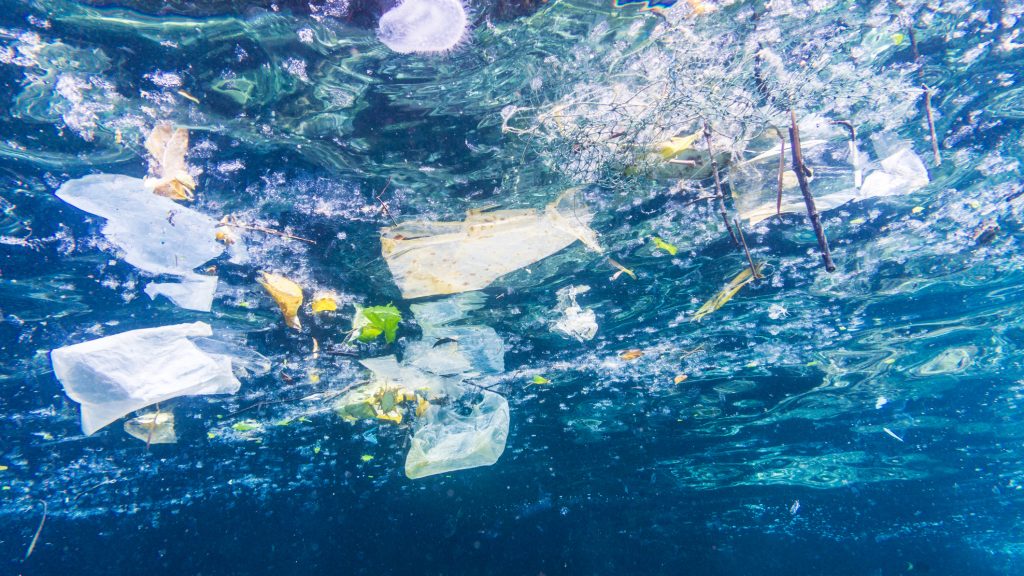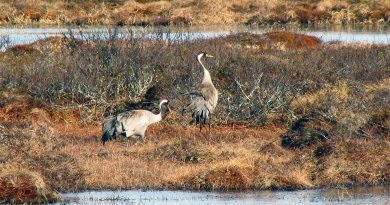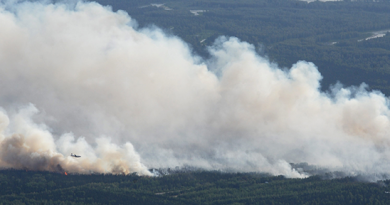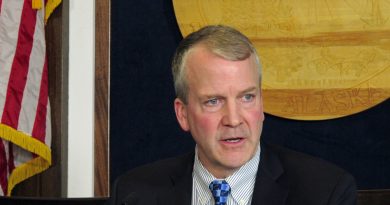Iceland to host international symposium on plastics in Arctic and sub-Arctic

Iceland will host an international symposium on plastics in the Arctic and sub-Arctic this April to share best practices and feed back into the work of the Arctic Council.
Iceland currently holds the Arctic Council’s rotating two-year chairmanship and has made marine litter issues one of its priorities.
Early on its chairmanship, it designated Magnus Johannesson, the former director of the Arctic Council Secretariat, as a special coordinator on plastics to help coordination with the forum’s Working Groups and other relevant bodies on the issue.
The symposium is also part of its plan to make sure plastic pollution stays on the radar during its mandate.
“We hope that the International Symposium on Plastics in the Arctic and Sub-Arctic Regions will gather the best knowledge there is on marine plastic pollution and will help us to create a pragmatic road-map for future actions,” Johannesson said in emailed comment to Eye on the Arctic on Monday.
The hope is the information and best practices shared at the symposium can then contribute to the Arctic Council’s regional action plan for the North.
“It is fundamental to understand better the impact of plastics in the Arctic Marine Environment in order to identify the priority actions for curbing plastic pollution in the Arctic,” Johannesson said.
International cooperation
The Arctic Council is an international forum made up of Canada, Denmark, Finland, Iceland, Norway, Sweden, Russia and the United States; and six Arctic Indigenous groups; the Aleut International Association, the Arctic Athabaskan Council, the Gwich’in Council International, the Inuit Circumpolar Council, the Russian Association of Indigenous Peoples of the North and the Saami Council.
The Government of Iceland will host the symposium in collaboration with the Nordic Council of Ministers (of which Iceland is currently president) in connection with the Icelandic Chairmanship of the Arctic Council.
Symposium sponsors include International Council for the Exploration of the Sea (ICES), the United Nations Environment Programme (UNEP), the OSPAR Commission, the Intergovernmental Oceanographic Commission of UNESCO (IOC), the Marine and Freshwater Research Institute of Iceland, the Harvard Kennedy School and the International Arctic Science Committee.

Other initiatives undertaken to raise awareness of marine litter during Iceland’s Arctic Council chairmanship includes the Arctic Council’s Protection of the Arctic Marine Environment (PAME) working project “Plastic in a Bottle” that has released GPS-bugged capsules into the water to simulate plastic bottles that can then be tracked live on the group’s website.
Plastic in the ocean is especially dangerous as it gets broken down into microplastics that can then be easily ingested by animals and sea life. UNESCO has said that plastic debris causes the deaths of more than a million seabirds and more than 100,000 marine mammals every year.
But despite the breadth of the problem, nailing down exact data on what’s going on the Arctic remains a challenge.
Experts say very little is known about how plastic pollution travels and the extent of the impacts it’s having on the Arctic and sub-Arctic.
According to PAME’s 2019 Desktop Study on Marine Litter, of the data that is available, most comes from Barents, Norwegian and Bering Seas, with little data available from the Central Arctic Ocean and the coastal areas around it, including Siberia in Russia, Arctic Alaska, mainland Canada, and the Canadian Arctic Archipelago.
The International Symposium on Plastics in the Arctic and Sub-Arctic will run from April 21-23, 2020 in Reykjavik.
Write to Eilís Quinn at eilis.quinn(at)cbc.ca
Related stories from around the North:
Canada: Ottawa and Inuit in Atlantic Canada to launch study on protected marine area, Eye on the Arctic
Finland: Citizens’ initiative prompts Finnish lawmakers to consider microplastics ban, Yle News
Iceland: Arctic Council group lobs GPS-bugged capsules into Atlantic to track litter trajectories in the North, Eye on the Arctic
Norway: Urgent action needed to protect Arctic Ocean, WWF says, The Independent Barents Observer
Russia: Russian Navy sends clean-up team to Arctic trash dump, The Independent Barents Observer
Sweden: Swedish raft made from trash draws attention to plastic pollution, Radio Sweden
United States: Industry launches campaign to free oceans from plastic… how serious is it?, Alaska Public Media



